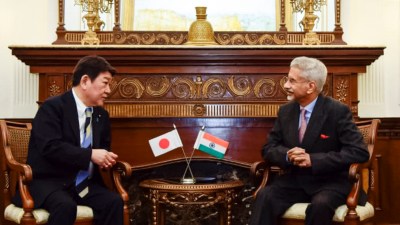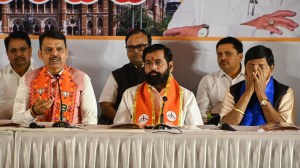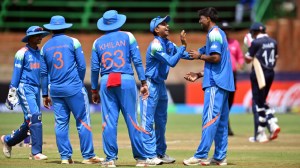Two images
Last week belonged to two images that dodged their appointment with a waiting world media. There was Saddam Hussein, six months after they p...

Last week belonged to two images that dodged their appointment with a waiting world media. There was Saddam Hussein, six months after they pulled him out of a hole in the ground, in what looked like a court of law. Only a handful of media organisations were actually allowed inside. Earlier, the much awaited handover of 8216;power8217; in Iraq passed without a proper photo-op, two days ahead of schedule. It was a private affair in a closed room, at a time when most of America was fast asleep. It left all major networks scrambling for 8216;8216;visuals8217;8217;.
There was loud outrage in sections of the western press at being kept out of the private invitation-only event. But from Dubai, the Washington Post reported a lot of weary irony. 8216;8216;A war of images, of toppled statues and looted museums, of captured Americans and mangled children, a war whose ending was marked with a premature victory celebration on an aircraft carrier more than a year ago, was given another ambiguous marker.8217;8217;
Future imperfect
Monday8217;s handover and its stunning lack of fanfare were quickly elbowed aside. The media has moved on, by and large, in the west and the Middle East. The conversation that rages now is about the future: money, police, security, Bush8217;s prospects of re-election, the future of Saddam Hussein.
In the days after the furtive ceremony in Baghdad, Egypt8217;s respected Al-Ahram Weekly invited Iraqi journalists and intellectuals to provide some answers: how sovereign is Iraq? What future does the ongoing process offer to that broken nation? How can a genuinely free, democratic and prosperous Iraq be created?
Nermen Al-Mufti catalogued the new terms in the Iraqi lexicon. Like 8216;Al-Hawasem8217; the finals, a word Saddam used to describe the recent war, now used for those who have become rich through post-war looting. Or like 8216;Sakan Awael8217; residential quarters, now a term for government buildings taken over by squatters. But the two most important words are 8216;monhal8217; disbanded, used with reference to the army, police, security services, the information minister, Baath party, governing council. And 8216;intiqali8217; interim/transitional, referring to the interim government, president, constitution and National Council. 8216;8216;In a sense, all of us are transitional in this country. We are still living because car bombs and US bullets have missed us.8217;8217;
Sociologist Ibrahim Al-Haidry examined the anatomy of a people after decades of dictatorship and decay. What could be the way forward, he wondered, for a people whose horizons have been closed by the politics and culture of domination and submission, tyranny and acquiescence. What Iraq needs most, he said, is for Iraqis to work together to create a culture of tolerance and dialogue.
Aziz Jabr Shayyal assessed the careers and prospects of the political groups that exist in Iraq. The monolithic state party has been followed by outfits that promote the 8216;8216;denominational/ethnic approach8217;8217; to the distribution of power. They are more rooted outside the country, in terms of funding and support, than inside it. They possess well-trained armed militias.
From Kerala to Iraq
The Washington Post wrote about the new underclass of workers created in Iraq. Foreign labourers, it said, many of them from India, receive inferior pay, food and shelter. Like Dharmapalan Ajayakumar, 29, a former carpenter8217;s assistant from Kollam in Kerala, who was tricked into going into the war zone. The recruiting agent had promised him a job in Kuwait. Finding himself in a military base in Iraq, near the northern city of Mosul, he was terrified by the frequent gunfire, mortar, rocket attacks. And most of all, by the discriminatory treatment by others on the base.
The Post described an elaborate, multi-layered fraud. Thousands of foreign contractors are hired by a maze of recruiters and subcontractors on several continents. To be sure, the reconstruction of Iraq has provided workers from developing countries with job opportunities they might never have had. But, said the paper, the vast difference in the recruiting, compensation, accommodation and protection of some foreigners versus their American counterparts is raising some unsettling questions about how companies calculate the value of life in Iraq.
- 01
- 02
- 03
- 04
- 05































